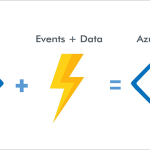It took me nine months to relax from my previous entrepreneurship era and start a new career as a Technology Advisor at Futurice Ltd in London. During the nine months period, I had enough time to explore new markets and think about what could be my next interesting and lucrative move. I’m going to write more about my explores later, but first I will share my thoughts about finding a job in London as it is in my fresh memory.
I started my professional career in Finland and worked there more than a decade in a limited, competitive and small but interesting, forward-going, time-ahead, and high-tech market. During this time I always had in my mind either expand my company to a larger market or move eventually to a metropolitan city. London was always my first choice as it is a metropolitan city in Europe and most large global companies have an ongoing operation in the UK. The mission of a new job search started at the beginning of August and I signed my contract at the beginning of September. Here are my learnings and considerations:
1. Don’t look for a job remotely
My family has a holiday residence in Southern-Spain and I was settled there during the summer. The new job operation kicked started from there by updating the CV and having my Spanish phone number in the contact information. After uploading the CV to various job-sites and having discussions with recruiters I found out that not being in the UK and not having a UK phone number was a show-stopper. That’s why I decided to travel to Londo, stay for a few weeks and buying a pre-paid phone number was my first action.
2. Don’t be passive and sell your self
If you are moving to the UK from another market/country it is obvious you are unknown professional. After having your CV uploaded to a job site do not wait for companies or recruiters to be in touch with you. List all interesting roles with contact details for your self and start to call them as much as you can. This stage reminded me of the start-up phase of Digital Illustrated where I had to call and introduce the company, but without a proper CRM system.
3. Don’t make compromises for your level of professionality
At the beginning of the search phase, I thought by reducing my expectations I will be faster to get a contract as I was not looking for a permanent position. It didn’t take me long to familiarize my self with the terminology of “Over-Qualified”. I guess this is a cultural matter as I did not come across this term in Finland. Basically, don’t Apply for a lower skilled position. For example, if your CV says you are an architect and you have done the job for certain years do not apply for a programmer position. Most companies will decline your application and will justify and explain the decision by the lack of motivation or “you will get bored and leave” message.
4. The market of recruiters
There are hundreds of recruiting agencies in the UK and they are all super active to hunt you down. The moment your CV gets indexed in the search results you will have calls from early morning until the afternoon. Remember to take a note of your discussions and make some background check. Some of these agencies are more professional than others
5. Do not sign any agreement during the search phase
Some recruitment agencies will try to send you terms and conditions during the search phase to be accepted. I noticed even a non-competition and NDA agreement. DO NOT SIGN any AGREEMENT with them during the search phase, even if they refuse to see you or insist to sign before having a face-to-face meeting.
6. Be careful with Job descriptions and roles
Don’t waste your time with generic job descriptions. For example the job description “.Net Developer” can be everything between Desktop Application development to Web Development. Be accurate with the job description and all bullet points. Even a small bullet point can be important to the employer and later will be a shop-stopper and waste of time!
7. Do not freeze your CV
My CV was made in Finland for enterprise level sales use. During my career, I had all kind of profession information available in my CV and that made my CV not longer than eight pages. Remember to have only essential information available in the CV, take feedback from each recruited you communicate with, and make sure the CV is two pages long with the most important information on the front page.
8. Avoid strange interviews
At some point, the recruiting company will ask you to have an interview with the client. I faced few strange interviews in where the client sent me an online task with limited time. The task I got had nothing to do with the role I applied for and it was a waste of time. I also had a phone interview in where the client decided to show their super skills and asking super detailed questions. Try to avoid none face-to-face interviews if there will be a task to accomplish.
9. Keep your options always open
Do not reject any role until you have a signed contract. There is always a tinny possibility to have complications on the road. After signing the desired contract remember to decline other offers politely and keep doors open for the future.
Here are some other hints you may find interesting:
- Take your time to negotiate but be fast to make decisions
- Remember always to do some background check about the client
- Prefer direct discussions with companies rather than recruiting companies
- Do some research about rates for certain positions, if you are looking for a contract position and year salary if you are keen to permanent positions
- Money is not everything and not the most important driver. The role and the employer have more impact on your daily work, motivation, and work satisfaction.



